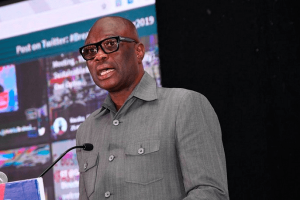Consumer goods giant Unilever has confirmed it will cut about 1,500 jobs globally as part of an overhaul of its management and structure.
The Marmite-to-Domestos maker said the 5% cut in the workforce would not affect shopfloor jobs in factories.
Unilever is under pressure after a failed £50bn bid for a division of GlaxoSmithKline, and some shareholders have demanded changes.
The firm employs more than 6,000 people in its UK and Ireland operations.
Plans for jobs cuts and a re-organization have been underway for many months.
The new Unilever will be re-organized around five divisions, including beauty, personal care and ice cream, resulting in several senior executive changes along with cuts further down the management chain.
“Our new organizational model has been developed over the last year and is designed to continue the step-up we are seeing in the performance of our business,” said chief executive Alan Jope.
“Moving to five category-focused business groups will enable us to be more responsive to consumer and channel trends, with crystal-clear accountability for delivery. Growth remains our top priority and these changes will underpin our pursuit of this.”
Unilever’s 80 brands are currently divided into three divisions: Beauty & Personal Care, Food & Refreshment, Home Care. The new structure spins off brands Ben & Jerry’s, Magnum and Cornetto into a separate division called Ice Cream, headed by Matt Close.
Unilever said Ben & Jerry’s will retain its separate independent board, a structure agreed when Unilever bought the brand in 2000.
The announcement comes just a week after Unilever sparked anger from some investors when it dropped a short-lived pursuit of GlaxoSmithKline’s (GSK) healthcare business.
Unilever had initially said it wanted a bigger slice of the personal healthcare and hygiene market, to offset slow growth in its foods business.
But GSK, which owns brands such as Sensodyne toothpaste and Panadol painkillers, said the offer “fundamentally undervalued” the division and Unilever has since refused to raise its bid.
The saga has sparked unease about the firm’s management under Mr Jope, with the head of Unilever’s 13th biggest investor labelling the GSK bid as a “near death experience”.
In a scathing attack, influential fund manager Terry Smith, who runs Fundsmith, criticized Unilever’s “meaningless platitudes” over its social and environmental commitments and told Mr Jope to focus on improving the existing businesses “before taking on any more challenges” like the GSK bid.
Unilever, one of the biggest companies on the FTSE 100, is also one of the biggest dividend payers to shareholders and pension funds.
Powerful activist investor Nelson Peltz has also been agitating for change, raising a question mark over Mr Jope’s future.







